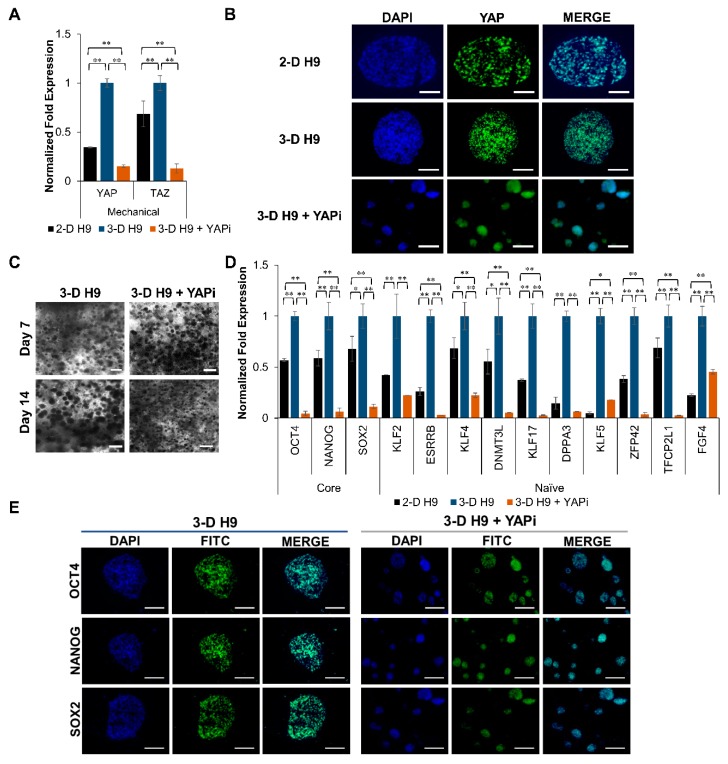Figure 7.
Effect of Yes-associated protein (YAP) inhibition (YAPi) on cell growth and expression of pluripotent markers in human ESCs cultured under 3-D conditions. ESCs (H9 cells) were grown under 3-D culture conditions for 14 days and incubated in the absence (control) or presence of a YAPi. (A) The effect of YAPi on the expression of mechanosensitive markers, YAP and TAZ, in H9 cells grown in 2-D and 3-D culture conditions as determined by qRT-PCR. (B) Merged confocal images (20X) showing YAP protein expression in 2-D and 3-D grown H9 cells. (C) Light micrographs depicting the cell morphology and colony size of 3-D grown H9 cells incubated in the presence or absence of YAPi. (D) Comparison of relative gene expression of core and naïve pluripotent markers in H9 cells grown under 2-D, 3-D, and 3-D + YAPi conditions as determined by qRT-PCR. Results were expressed as the fold expression ± SE normalized to reference genes HMBS, GAPDH, and β-ACTIN (* p < 0.05 and ** p < 0.01). (E) Merged confocal images (20X) of 3-D H9 cells with and without YAPi treatment for the protein expression of OCT4, NANOG, and SOX2. All scale bars represent 100 μm.

